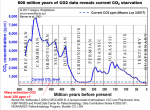Concerto
Well-Known Member
A frightening prospect. The amount of plankton in the Atlantic is at a new low. This is the bottom of the food chain for all marine creatures.
Atlantic Ocean 'pretty much dead' says scientist as plankton wiped out - Marine Industry News
Atlantic Ocean 'pretty much dead' says scientist as plankton wiped out - Marine Industry News


